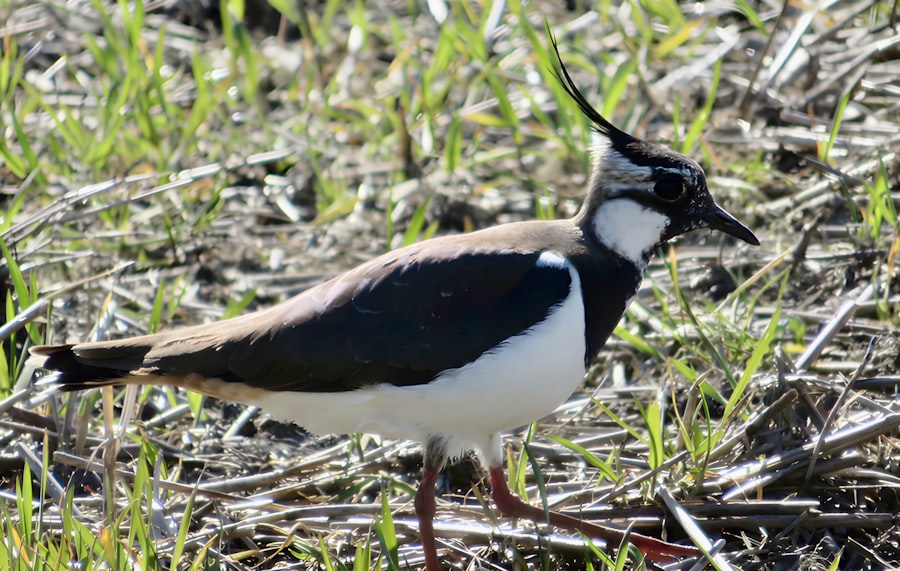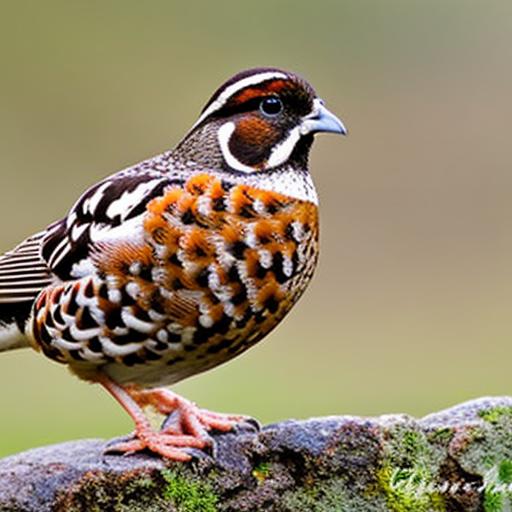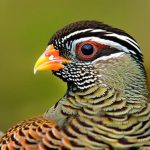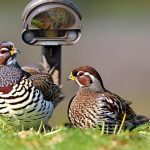When it comes to choosing the right quail breed for your needs, there are several factors to consider. First and foremost, you’ll want to think about the purpose of raising quail. Are you looking to raise quail for meat, eggs, or as pets? Different breeds are better suited for different purposes. For example, if you’re interested in raising quail for their meat, you might want to consider breeds like the Jumbo Coturnix or the Italian or Pharaoh quail, which are known for their large size and fast growth rate. On the other hand, if you’re interested in raising quail for their eggs, you might want to consider breeds like the Texas A&M or the Golden Coturnix, which are known for their high egg production.
Another factor to consider when choosing a quail breed is the climate in which you live. Some quail breeds are better suited for cold climates, while others are better suited for warm climates. For example, the Bobwhite quail is well adapted to cold climates and can withstand harsh winters, making it a good choice for those living in northern regions. On the other hand, the Coturnix quail is better suited for warm climates and can be sensitive to cold temperatures, making it a better choice for those living in southern regions.
In addition to considering the purpose and climate, you’ll also want to think about the temperament and behavior of different quail breeds. Some breeds are known for being more docile and friendly, making them better suited for pets, while others are more skittish and flighty, making them better suited for meat or egg production. It’s important to do your research and choose a breed that aligns with your goals and preferences. Overall, when choosing the right quail breed, it’s important to consider factors such as purpose, climate, temperament, and behavior to ensure that you select the breed that best fits your needs and preferences.
Key Takeaways
- Choose a quail breed that suits your needs and environment, considering factors such as egg production, meat quality, and temperament.
- When building a quail coop, prioritize ventilation, protection from predators, and easy access for cleaning and egg collection.
- Provide a balanced diet for your quail, including commercial feed, fresh greens, and clean water to ensure their health and productivity.
- Regularly monitor your quail for signs of illness, and implement biosecurity measures to prevent the spread of diseases within your flock.
- Collect quail eggs daily, store them properly, and consider using an incubator for hatching if you are interested in expanding your flock.
Building the Perfect Quail Coop
Building a quail coop is an essential part of raising quail, as it provides a safe and comfortable environment for your birds to live and thrive. When building a quail coop, there are several key factors to consider to ensure that it meets the needs of your quail. First and foremost, you’ll want to consider the size of the coop. Quail require a certain amount of space to move around and exercise, so it’s important to provide an adequate amount of space for your birds. As a general rule of thumb, you’ll want to provide at least 1 square foot of space per quail to ensure that they have enough room to move around comfortably.
In addition to size, you’ll also want to consider the design and layout of the coop. Quail coops should be well-ventilated to ensure good air circulation and prevent the buildup of ammonia from droppings. Additionally, the coop should be predator-proof to protect your quail from potential threats such as raccoons, foxes, and birds of prey. It’s also important to provide nesting boxes and perches for your quail to roost and lay eggs. Overall, when building a quail coop, it’s important to consider factors such as size, ventilation, predator-proofing, nesting boxes, and perches to ensure that you create the perfect environment for your quail to thrive.
Feeding and Watering Your Quail
Feeding and watering your quail is an essential part of raising healthy and happy birds. When it comes to feeding quail, it’s important to provide a balanced diet that meets their nutritional needs. Quail require a diet that is high in protein to support their growth and egg production. Commercial quail feed is readily available and is formulated specifically for quail, providing them with the essential nutrients they need to thrive. In addition to commercial feed, you can also supplement your quail’s diet with treats such as mealworms, fruits, and vegetables to provide variety and enrichment.
In addition to feeding, providing clean and fresh water is essential for quail health and well-being. Quail require access to clean water at all times to stay hydrated and maintain their health. It’s important to regularly check and clean waterers to ensure that they are free of debris and contaminants. Additionally, during hot weather, it’s important to provide shade and cool water to help prevent heat stress in quail. Overall, when it comes to feeding and watering your quail, it’s important to provide a balanced diet that meets their nutritional needs and ensure that they have access to clean and fresh water at all times.
Quail Health and Disease Prevention
Maintaining the health of your quail is essential for their overall well-being and productivity. There are several key factors to consider when it comes to quail health and disease prevention. First and foremost, it’s important to regularly monitor your quail for any signs of illness or distress. Common signs of illness in quail include lethargy, decreased appetite, abnormal droppings, respiratory issues, and feather loss. If you notice any of these signs, it’s important to promptly isolate the affected birds and seek veterinary care if necessary.
In addition to monitoring for signs of illness, it’s important to practice good biosecurity measures to prevent the spread of disease within your flock. This includes regularly cleaning and disinfecting the coop and equipment, as well as practicing proper hygiene when handling your birds. It’s also important to quarantine new birds before introducing them to your existing flock to prevent the spread of any potential diseases. Additionally, providing a balanced diet, clean water, and a stress-free environment can help support the overall health and immune function of your quail. Overall, maintaining the health of your quail requires regular monitoring for signs of illness, practicing good biosecurity measures, and providing a supportive environment for your birds.
Quail Egg Collection and Incubation
Collecting quail eggs is an exciting part of raising quail and can provide a bountiful harvest for consumption or incubation. When collecting quail eggs, it’s important to handle them with care to prevent damage and contamination. Quail eggs should be collected daily to ensure freshness and prevent them from being trampled or soiled by the birds. It’s important to gently clean any soiled eggs with a dry cloth or fine sandpaper before storing them.
Once collected, quail eggs can be consumed or incubated for hatching. If you’re interested in hatching quail eggs, it’s important to store them properly before placing them in an incubator. Quail eggs should be stored in a cool and humid environment with the pointed end facing downward to help preserve their viability. When it comes to incubating quail eggs, it’s important to follow the specific requirements for temperature, humidity, and turning frequency to ensure successful hatching. Overall, collecting quail eggs requires careful handling and storage, while incubating them requires attention to specific environmental conditions for successful hatching.
Quail Behavior and Socialization

Understanding quail behavior and socialization is essential for creating a harmonious flock environment. Quail are social birds that thrive in groups, so it’s important to provide them with ample space and opportunities for social interaction. When introducing new birds to an existing flock, it’s important to do so gradually to prevent aggression and establish a pecking order. Providing multiple feeding and watering stations can help reduce competition and aggression among birds.
In addition to socialization, understanding quail behavior can help identify signs of stress or discomfort in your birds. For example, excessive vocalization or feather picking can be signs of stress or overcrowding in the coop. Providing enrichment such as dust baths, perches, and hiding spots can help reduce stress and promote natural behaviors in quail. Overall, understanding quail behavior and socialization is essential for creating a harmonious flock environment and promoting the well-being of your birds.
Tips for Breeding and Raising Quail Chicks
Breeding and raising quail chicks can be a rewarding experience that requires careful attention to their specific needs. When breeding quail, it’s important to provide nesting boxes with suitable bedding materials for broody hens or incubators for artificial incubation. Once hatched, quail chicks require a warm and draft-free environment with access to chick starter feed and clean water. It’s important to monitor their growth and development closely during the first few weeks of life.
In addition to providing proper care for quail chicks, it’s important to consider their socialization needs as they grow. Providing ample space for chicks to move around and interact with each other can help promote healthy social development. Additionally, introducing new chicks gradually into an existing flock can help prevent aggression and establish social bonds among birds. Overall, breeding and raising quail chicks requires careful attention to their specific needs for warmth, nutrition, and socialization to ensure their healthy growth and development.
In conclusion, raising quail requires careful consideration of factors such as breed selection, coop design, feeding and watering practices, health maintenance, egg collection and incubation, behavior understanding, as well as breeding and raising chicks. By taking these factors into account and providing proper care for your quail, you can create a thriving flock that provides meat, eggs or companionship while bringing joy into your life as a poultry enthusiast.
If you’re interested in keeping quail, you may also want to consider creating a suitable environment for them. Check out this informative article on Poultry Wizard about setting up a garden chicken coop here. It provides valuable insights into creating a safe and comfortable space for your quail to thrive.
FAQs
What are some basic requirements for keeping quail?
Quail require a suitable living space, such as a cage or aviary, with proper ventilation and protection from predators. They also need access to clean water, a balanced diet, and a suitable nesting area.
What should I feed my quail?
Quail should be fed a balanced diet that includes commercial quail feed, as well as fresh fruits and vegetables. They also require access to grit and calcium to aid in digestion and egg production.
How do I provide suitable housing for quail?
Quail housing should provide enough space for the birds to move around comfortably, as well as protection from the elements and predators. The flooring should be covered with suitable bedding material, such as straw or wood shavings.
What are some common health issues for quail?
Common health issues for quail include respiratory infections, parasites, and injuries from pecking or fighting. It’s important to monitor the health of your quail and seek veterinary care if any issues arise.
How do I care for quail eggs and chicks?
Quail eggs should be collected daily and stored in a cool, dry place. When hatching chicks, it’s important to provide a suitable brooding area with heat, food, and water. Chicks should be monitored closely for any signs of illness or distress.
Meet Walter, the feathered-friend fanatic of Florida! Nestled in the sunshine state, Walter struts through life with his feathered companions, clucking his way to happiness. With a coop that’s fancier than a five-star hotel, he’s the Don Juan of the chicken world. When he’s not teaching his hens to do the cha-cha, you’ll find him in a heated debate with his prized rooster, Sir Clucks-a-Lot. Walter’s poultry passion is no yolk; he’s the sunny-side-up guy you never knew you needed in your flock of friends!







